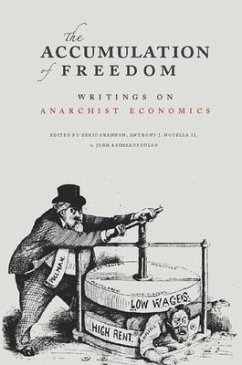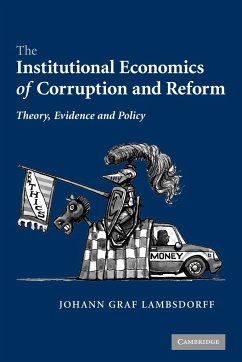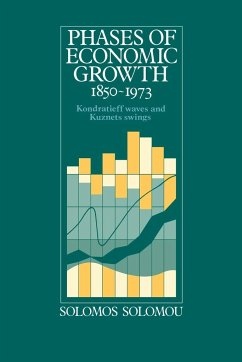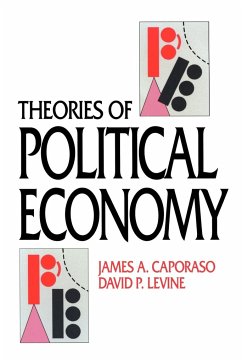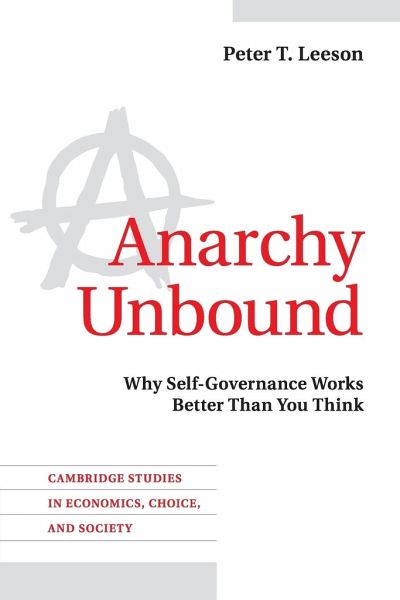
Anarchy Unbound
Versandkostenfrei!
Versandfertig in 1-2 Wochen
32,99 €
inkl. MwSt.
Weitere Ausgaben:

PAYBACK Punkte
16 °P sammeln!
In Anarchy Unbound, Peter T. Leeson uses rational choice theory to explore the benefits of self-governance. Relying on experience from the past and present, Professor Leeson provides evidence of anarchy 'working' where it is least expected to do so and explains how this is possible. Provocatively, Leeson argues that in some cases anarchy may even outperform government as a system of social organization, and demonstrates where this may occur. Anarchy Unbound challenges the conventional self-governance wisdom. It showcases the incredible ingenuity of private individuals to secure social cooperat...
In Anarchy Unbound, Peter T. Leeson uses rational choice theory to explore the benefits of self-governance. Relying on experience from the past and present, Professor Leeson provides evidence of anarchy 'working' where it is least expected to do so and explains how this is possible. Provocatively, Leeson argues that in some cases anarchy may even outperform government as a system of social organization, and demonstrates where this may occur. Anarchy Unbound challenges the conventional self-governance wisdom. It showcases the incredible ingenuity of private individuals to secure social cooperation without government and how their surprising means of doing so can be superior to reliance on the state.





